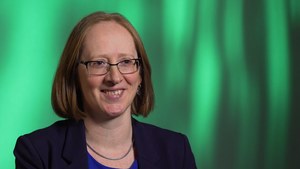JOIN VIRTUALLY! Leaping or Creeping Up the Energy Ladder

In accordance with updated University guidelines on limiting public gatherings in light of COVID-19 concerns, this event will be offered virtually via Zoom. Those interested in attending should contact wbrooks@nd.edu or tdinkelm@nd.edu for instructions on how to join by computer or phone.
Almost half of the world’s population that does not have access to modern energy – specifically, electricity – lives in Africa. In the coming decades, planned expansions in access to electricity for households and businesses across the continent will have implications for poverty reduction and for greenhouse gas emissions. Yet there is considerable uncertainty around how fast or slow these expansions in access will be, and around how quickly they will translate into impacts on the environment, on household livelihoods and on small businesses in sub-Saharan Africa. In this project, we provide direct evidence on what happens to a rural African community over twenty years, following the introduction of highly subsidized grid electricity connections. We use data from a unique longitudinal household survey over twenty years to map out the dynamics of diffusion of household electrification in a rural part of South Africa.
The Development Economics Working Group supports graduate and faculty research in the economic determinants of human development and how economic policy can be used to promote human development. It promotes dialogue among researchers with different areas of expertise, from a variety of perspectives and subject areas, uch as health, education, infrastructure, governance, and migration. Regular meetings allow participants to workshop research in progress, while occasional seminars bring external researchers to campus to discuss their work and provide feedback on projects of group members. Cochairs: Wyatt Brooks and Taryn Dinkelman
Speaker
Taryn Dinkelman is an associate professor of economics at the University of Notre Dame who specializes in development and labor economics, with a focus on Africa. Her work identifies barriers that prevent workers in developing countries from realizing the full value of their labor. She has studied how labor market and human capital outcomes are affected by inadequate physical infrastructure, poor legal protections, exposure to environmental shocks in early life, and information barriers. Her current projects show that allowing workers to migrate to where their labor is more valuable facilitates structural change in rural labor markets and enhances educational attainment in sending communities.
Dinkelman previously held appointments at Dartmouth College and Princeton University and was a visiting fellow at Harvard and Yale universities. She is a faculty research associate at the National Bureau of Economic Research (NBER); a research affiliate at the International Growth Centre (UGC), the Centre for Economic Policy Research (CEPR), the Bureau for Research and Economic Analysis of Development (BREAD), and the South African Labour and Development Research Unit (SALDRU); and a research fellow at the Institute for the Study of Labor (IZA).
Sponsored by the Kellogg Institute for International Studies